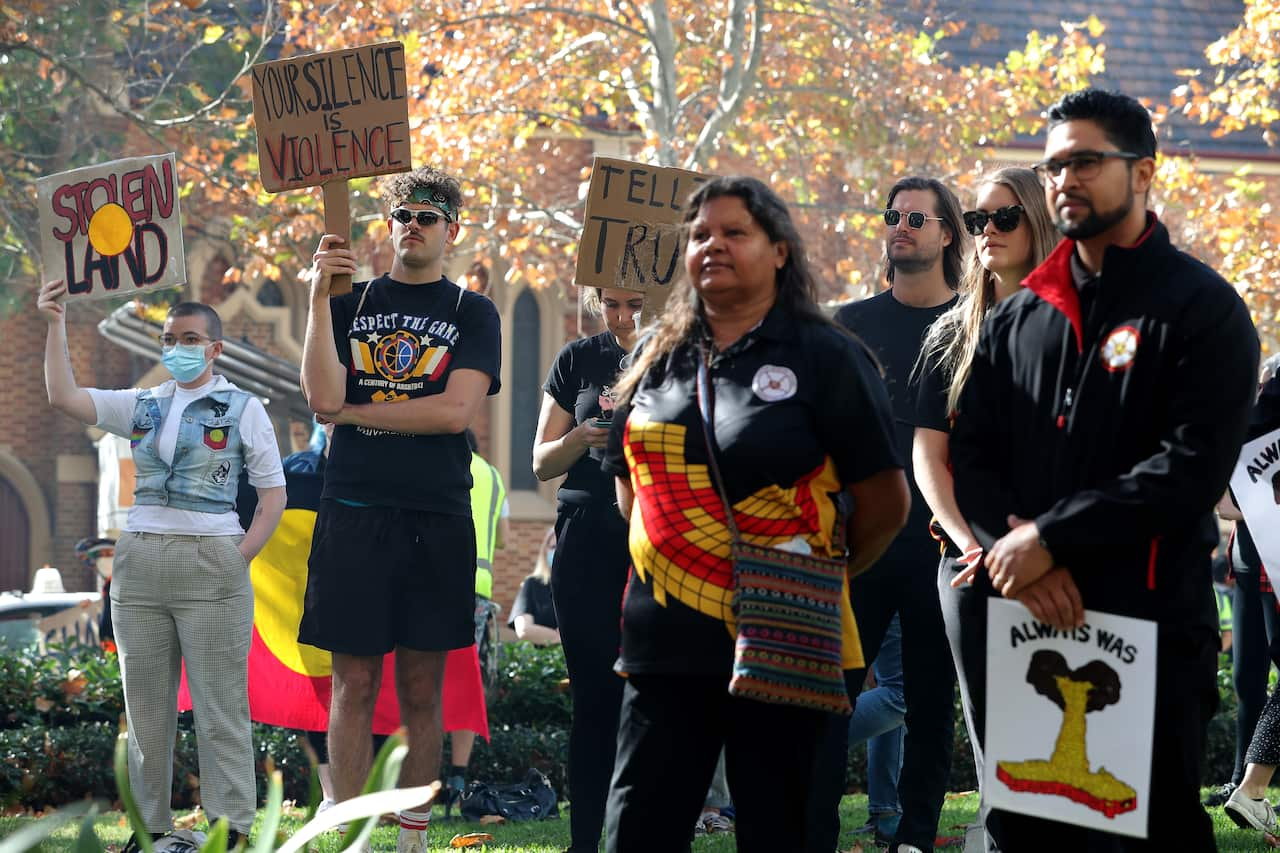Industrial threats to Aboriginal rock art and other ancient sites will be in focus when the World Archaeological Congress meets in Australia for the first time.
Hosted by Flinders and Charles Darwin Universities, the week-long conference will welcome thousands of delegates from more than 70 countries to Darwin from Sunday.
One of the stated aims of the congress is to advance global policy, "especially as it relates to the protection of heritage".
The event comes just weeks after the federal government gave Woodside's North West Shelf project - which hosts Australia's biggest gas export plant - a provisional green light to keep operating until 2070.
The project on Western Australia's Burrup Peninsula is home to renowned ancient rock art at Murujuga, and the energy giant still has to accept conditions on heritage and air quality before the approval becomes official.
Scientists are concerned emissions from the nearby gas plant are eroding rock surfaces and harming the famed petroglyphs at the site.
In May 2020, Rio Tinto's destruction of the 46,000-year-old Juukan Gorge rock shelters in the Pilbara left traditional custodians devastated and caused global outrage, prompting the mining giant to apologise.
Meanwhile, cultural heritage laws in WA and the Northern Territory have come under fire for not adequately protecting sacred and ancient sites.
Eileen Cummings, a Charles Darwin University fellow and co-chair of the conference's Indigenous Elders Committee, said the protection of Aboriginal rock art and ancient sites would be discussed at the congress.

"For a long time, we were worried about our sacred sites but now our people are starting to look at the sites that are archaeological, so they can get trained in that area to look after those areas," she told AAP.
She hoped more young Indigenous people would train as archaeologists to better understand and protect Country.
Aboriginal rangers would also benefit from learning about ancient sites so they could better protect them, Ms Cummings said.
The congress brings together archaeologists, heritage professionals, anthropologists, historians, and Indigenous leaders and community members from across the globe.
Flinders University archaeologist Claire Smith said the event offered a remarkable opportunity for leading thinkers to "explore and reflect on our shared past".

